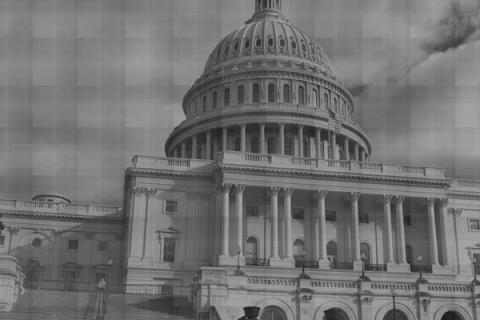The final draft of the by-this-point infamous economic stimulus bill hasbeen released to the public, and as even the infamously liberal New York Timesconcedes, it'sa mess. Reading more like the poorly written term paper of a drunkencollege student than an actual bill, the bill has been reportedlymarked repeatedly with under-the-radar last-minute changes, all written in theuntidy scrawl of overzealous legislators.
Unfortunately, unlike a marked-up essay, some of these untidyscrawls will end up costing hundreds of millions of dollars and adding evenmore unnecessary debt onto the bloated bill, which will already cost eachindividual American family thousandsof dollars.
Of course, all of this is due to the attempts by an overreaching president to capitalizeon the panic of the American people. And the worst part is that, in the president's rush to call the ghost of John Maynard Keynes back from theninth circle of Stagflation, he has willfully ignoredeconomic evidence which could save the American people countless dollars,and could provide simpler, but less politically convenient, restitution for theeconomy.
As Joseph Welch once said to Senator Joe McCarthy, "At long last,have you no sense of decency, sir?"
Granted, the Republican party hasn't done much to stop this sort of thing -- in fact, given the legacy of the past eight years, one might almostcharacterize the current political climate as a sort of NASCAR race down theRoad to Serfdom. Indeed, some commentators have already characterized thestimulus package as the Democraticversion of the PATRIOT Act, and the comparison is an apt one. Whatever onethinks of the USA PATRIOT Act, one can't deny that absent panic, nothing nearly sodrastic could have even gotten past a committee in Congress.
However, unlike the PATRIOT Act, whose provisions arguably cast toowide a net, but had at least some relation to the problem of terrorism, thecurrent stimulus bill contains provisions that have nothing to do withstimulating the economy and everything to do with subjugating the Americanwallet. Even The NewYork Times bemoaned the Trojan horse style of politics that created theact, writing that the stimulus package "isalso a tool for rewriting the social contract with the poor, the uninsured andthe unemployed, in ways they have long yearned to do."
And how is this social contract to be rewritten, one might ask?With nothing less than a full-throated condemnation of the needy to enjoy alife of indentured servitude to the almighty government dole. Among the bill'smore juicy effects, the Times notes that it "would allow states toprovide Medicaid to an entirely new group: those who are receiving unemploymentinsurance benefits, their spouses and children under 19." In other words, the government is permitting itself to swallow whole sectors of the privateeconomy, effectively stripping those who depend upon those sectors of anyfeeling of self-reliance. Those who would be effected by this policy would noweffectively have a de facto mandate to vote for Democratic politicians, if onlyto keep themselves from dying of illness, and indeed, politicians like President Obama would have no troubleexploiting this.
And then, of course, there is the issue of the president'srhetorical inconsistencies. What happened to "Yes, we can"? If "we can," thenwhy do we need a stimulus package that puts our grandchildren in debt, and why do we need toextend statist excuses for failure to those currently in hard times.
President Obama's supposed inspiration, John Maynard Keynes, oncewrote that "in the long run, we are all dead." If only Keynes could be alive today to see the fruit of his labors. As economistDaniel Mitchell pointsout, he'd probably be horrified, and rightly so. The only things that are certain in life aredeath and taxes, and as such, in the long run we are not only all dead, butthanks to "hope" and "change," in the long run, we will all be broke.
